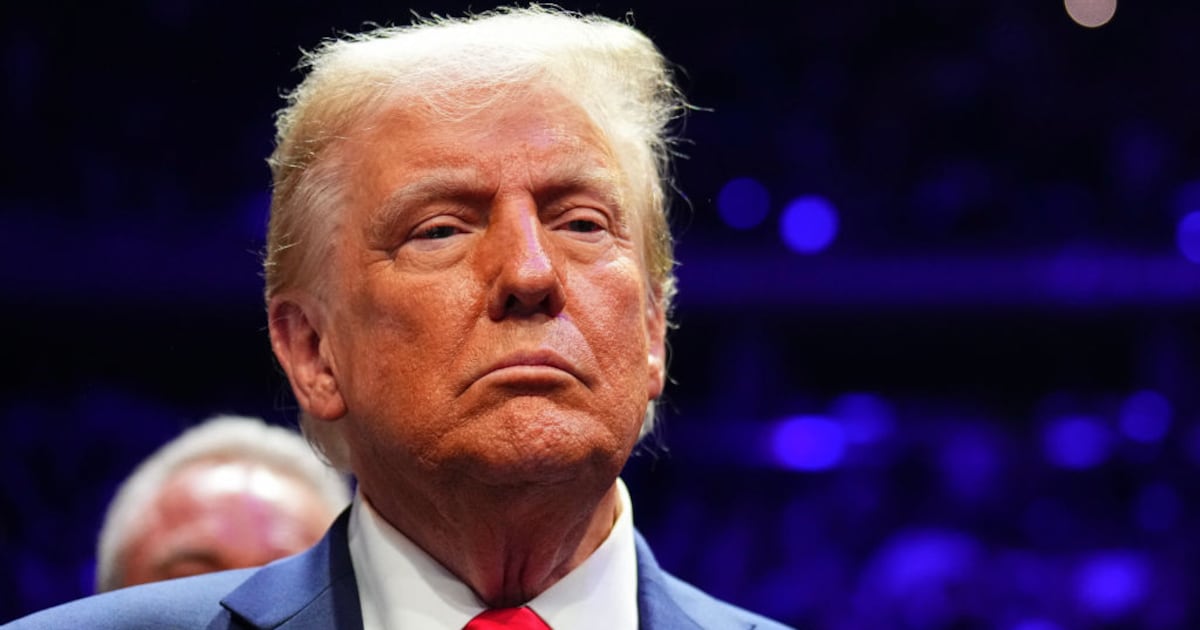The Age of Reagan is over.
Just as Reagan’s 1980 election ended the New Deal era of Franklin Delano Roosevelt, the election of Trump ends the era of Reaganonomics, with its emphasis on tax cuts for business owners and investors, growing power for Wall Street, and administrations based on (at least pretensions of) intellectuals making policy.
Trump’s election provides a powerful reminder that in America the people hold the ultimate authority. Just by voting they can order wholesale changes, as rural residents and whites without a college education did Tuesday in unexpected large numbers. A surprisingly large minority of Latinos also chose Trump, overcoming any revulsion at his racist attacks on their ancestors and undocumented neighbors.
ADVERTISEMENT
Donald Trump’s upset victory marks a sharp turn in America, risking its standing with the rest of the world and spreading fear among racial and religious minorities whom he blamed for America’s economic problems using the language and the symbols of neo-Nazis and the KKK, whose endorsement he declined to renounce.
Why Trump Won
Trump won because many millions of Americans, having endured decades of working more while getting deeper in debt, said “enough.”
From 1967, when Lyndon Johnson was president, to 2014, the average income of the vast majority of Americans rose by only $328 to $33,068. That’s just 1 percent above inflation after 47 years and this income stagnation applies, statistically, to the 90 percent, everyone who made less than $121,000 in 2014.
Over the same years, incomes among the top tenth of 1 percent grew so much—and tax laws were so generous to them—that many enjoy multiple mansions and a few own his-and-her private jets.
Many in the vast majority are worse off now than in LBJ’s day because while their real incomes remained flat, their bills—for housing, cars, college tuition—kept rising. And fear spread as unions were weakened, manufacturing required fewer workers, and all jobs became less secure, with fewer health and retirement benefits except for top executives. While food banks did not exist until 1967, today the greatest increase in requests for help at these banks comes from working families with children.
I understand this frustration. For more than two decades I have documented inequality. I have also explained the role of myriad government policies that subtly take from the many and give to the rich few, including Donald Trump. My bestselling trilogy on these tax and regulatory policies, however, did little to stop Congress and state legislatures from imposing more of them.
Because of that economics reporting—and because I have known Trump since 1988—when he announced his latest campaign in June 2015 I was one of the earliest national journalists who said he might win the Republican nomination.
The Republican party has not concerned itself with these issues, creating the opening that Trump and Bernie Sanders saw and that Trump rode all the way to victory. The politics of the party are about getting rid of capital gains and estate taxes, and lowering income tax rates on the rich—issues of no concern to those who are living paycheck-to-paycheck while praying that their aging car will start so they can get to work.
That Trump won votes from racists and nationalists, as well as single issue voters who believe he is with them on banning abortion (despite decades of holding the opposite view), is not surprising. The significance of his election is in the disaffection of people the Democrats historically courted, millions of whom chose Trump.
These Americans were so fed up with politicians growing rich while worsening their plight that they embraced an erratic personality with no history of public service. They rejected a thoroughly prepared candidate for president, Hillary Clinton, who fought for poor children for four decades, but could never escape a perception that she was manipulative and dishonest, characteristics that facts show apply fully to Trump.
These voters decided to entrust our future to a man with little knowledge of world affairs and no political philosophy, other than self-glorification, because he said he would make things better.
They rationalized Trump’s decades of shortchanging people like themselves, bragging of sexual assaults, and demeaning people whose skin color, faith, or physical condition differed from his own. These voters were so desperate, so fearful about the future, that they naïvely trusted Trump when he said he cares about them.
What Voters Ignored, Forgot, and Didn’t Know
These voters forgot, or did not listen, when Trump repeatedly said wages are too high. Trump is no friend of people seeking higher pay.
Few of these voters, I suspect, know of his long history of not paying his bills, resulting in layoffs of people like themselves as small businesses struggled with paying for goods they supplied, having not gotten payment in full for those goods from Trump.
Very few know that throughout his life Trump has embraced violent felons, Mafiosi, Russian mobsters, con artists, and most important of all a major cocaine trafficker. My book, The Making of Donald Trump, details this from court files and other public records. But while overseas television covered this extensively, not one word was spoken on ABC, CBS, NBC, or PBS about the candidate’s deep and lucrative criminal connections.
I also have to say that even had these matters been covered half as thoroughly as Clinton’s emails, perhaps it would not have mattered.
A scene from The American President, the 1995 Aaron Sorkin film about a widower in the White House running against a right-wing demagogue is instructive. Michael J. Fox played an aide who told the president, played by Michael Douglas, that “in the absence of genuine leadership” the people will “listen to anyone who steps up to the microphone. They want leadership. They’re so thirsty for it they’ll crawl through the desert toward a mirage, and when they discover there’s no water, they’ll drink the sand.”
Before long yesterday’s voters will realize that they just drank sand.
An insurgent Trump won leadership of the country—though not of the Republican party, which remains deeply divided over his fitness to hold office. With control of both Congressional chambers, however, the Republicans will be free to impose major changes and in Trump’s first 100 days surely will.
The Next Chapter
Here is what to expect, even with the sharp divisions between establishment and insurgents:
- Repeal of the Affordable Care Act, President Obama’s signature accomplishment, ending health care for more than 20 million people, many with pre-existing conditions.
- Appointment of a Supreme Court justice who could provide the fifth vote to overturn Roe v. Wade, the 1973 case that established a woman’s limited right to an abortion.
- Repeal of Dodd-Frank and other rules that prevent banks from engaging in the kind of practices that sank the economy in 2008, rules that Trump characterized as excessive regulation.
- Cutting regulations on coal-fired power plants, pipelines, and fracking for oil and natural gas, making America a pariah in a world where—among other major countries—climate change is accepted as serious science.
- Smaller budgets for the IRS and the Education and Labor Departments, together with big spending increases for the Pentagon, especially for weapons purchases given Trump’s claims that America needs more warships and military jets.
Unclear is whether we will see law enforcement deployed against minorities, immigrants, journalists, and political dissidents. But be wary, very wary, for the man just elected to the White House has again and again said that his personal philosophy is revenge.





